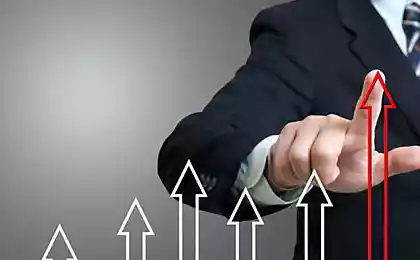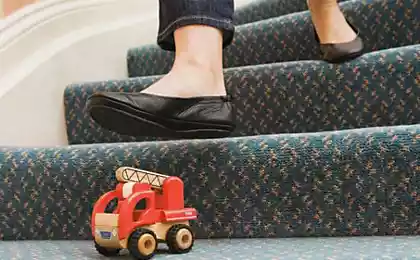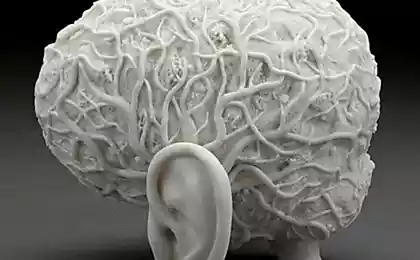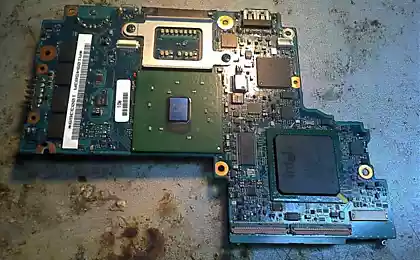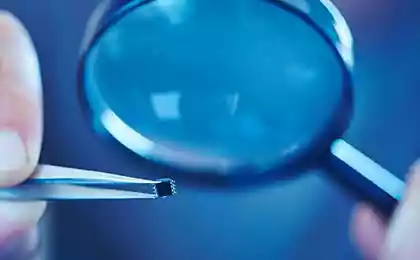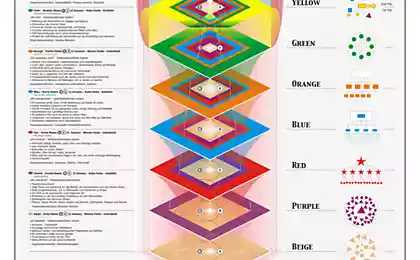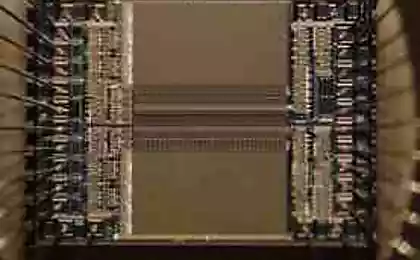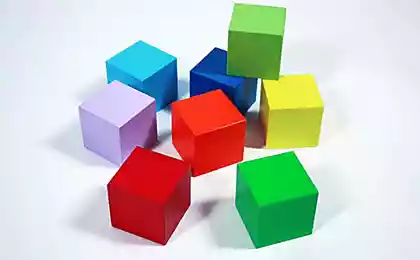563
Magical triggers, or How to change for the long haul
Why "good" habits so hard to develop? The answer to this question know the faculty of the graduate school of business of Stanford and authors of the bestseller "the Trap of thinking," Chip and Dan Heath. In his new book, "Heart of change" they talk about how to make changes for the long haul. Here are some important tips from the experts.

Habits and the environment are interrelated
To change yourself and others, it is necessary to change habits. This is logical, because habits are essentially stitched into our environment. And science confirms this.
According to one study, 36% of successful changes were associated with moving to a new place, and failure under such conditions was only 13%.
A simple example. Many smokers it is easier to quit Smoking on vacation because the house is associated with Smoking every detail. It's like trying to quit Smoking inside a Camel advertisement — everywhere you look, a bad habit is reminiscent of all.
When a smoker goes on vacation, the environment around him becomes neutral. This does not mean that quitting Smoking is easy, just easier.
However, developing habits is not only about environment, but also psychology. For example, it is very difficult to come up with an environment that makes you learn to play the piano. How to lay a psychological Foundation of new habits?

Set the trigger to action
Let's say you constantly putting off going to the gym. You decide for yourself: "Tomorrow morning to drop my daughter off at school — and once on the trainer. This setting is called the trigger action. You made the decision to produce a certain effect (to train) when confronted with a specific situational trigger (turn at the school tomorrow morning).
Peter Gollwitzer, a psychologist from new York University, and his colleague Veronica Brandstatter found that triggers are effectively motivated. In one of their studies, College students were given the opportunity to earn extra points. To do this, students were asked to write and submit by the 26th of December an essay about how they spent Christmas eve.
Most of the students were full of good intentions, but time to write and submit a "bonus" found only 33% of them. Another group of students had to set up triggers action in advance to identify exactly where and when they will write his opus (for example, "I will write this work at my dad's office on Christmas morning while everyone is sleeping"). Of these students work wrote 75%.
For such a small psychological "shift" the result is amazing! Does this mean that it is enough to imagine the time and place of actions to increase its probability? Yes and no. The triggers actions will not make you (and anyone) to do what you absolutely do not want to do. Triggers never would have convinced College students to participate in the Christmas in online classes in the meta-analysis.
But as proven by the above study, triggers, actions can have a powerful motivating force to get people to do things that they consciously want to do.
Peter Gollwitzer argues that the value of the trigger action lies in the fact that we prajarajyam decision. When you brought my daughter to school, turn on the next step is to go to the gym. There is no cycle of conscious deliberation.
Use your triggers
There are countless ways to use triggers action. If you need to make a deal with a new client than to maintain a relationship with existing, give yourself a trigger in the form of a "coffee and call". Say that every time, pouring a Cup of coffee, you need to call one of the most important customers.
Remember that the triggers, actions must be concrete and visible to interrupt the normal flow of human consciousness.
Action triggers create "instant habits". But although the triggers action is not ideal, it is difficult to imagine an easier way to increase the likelihood of immediate changes. A recent meta-analysis of 85 studies 8155 participants showed that the average person, setting itself triggers actions to cope with the task better than 74% of people, they are not installed.
Ellen Henriksen: learn to refuse without feeling guilty
Comfort zone. In or out
Immediate habits — this is a rare point of intersection between self-help and scientific reality. The next time you decide to act in new ways, challenge yourself: be clear about when and where you implement your plans.published
Based on the book "Heart of change" by Chip and Dan Heath
Source: bestwom.ru/razvlecheniya/knigi/kak-izmenitsya-vserez-i-nadolgo

Habits and the environment are interrelated
To change yourself and others, it is necessary to change habits. This is logical, because habits are essentially stitched into our environment. And science confirms this.
According to one study, 36% of successful changes were associated with moving to a new place, and failure under such conditions was only 13%.
A simple example. Many smokers it is easier to quit Smoking on vacation because the house is associated with Smoking every detail. It's like trying to quit Smoking inside a Camel advertisement — everywhere you look, a bad habit is reminiscent of all.
When a smoker goes on vacation, the environment around him becomes neutral. This does not mean that quitting Smoking is easy, just easier.
However, developing habits is not only about environment, but also psychology. For example, it is very difficult to come up with an environment that makes you learn to play the piano. How to lay a psychological Foundation of new habits?

Set the trigger to action
Let's say you constantly putting off going to the gym. You decide for yourself: "Tomorrow morning to drop my daughter off at school — and once on the trainer. This setting is called the trigger action. You made the decision to produce a certain effect (to train) when confronted with a specific situational trigger (turn at the school tomorrow morning).
Peter Gollwitzer, a psychologist from new York University, and his colleague Veronica Brandstatter found that triggers are effectively motivated. In one of their studies, College students were given the opportunity to earn extra points. To do this, students were asked to write and submit by the 26th of December an essay about how they spent Christmas eve.
Most of the students were full of good intentions, but time to write and submit a "bonus" found only 33% of them. Another group of students had to set up triggers action in advance to identify exactly where and when they will write his opus (for example, "I will write this work at my dad's office on Christmas morning while everyone is sleeping"). Of these students work wrote 75%.
For such a small psychological "shift" the result is amazing! Does this mean that it is enough to imagine the time and place of actions to increase its probability? Yes and no. The triggers actions will not make you (and anyone) to do what you absolutely do not want to do. Triggers never would have convinced College students to participate in the Christmas in online classes in the meta-analysis.
But as proven by the above study, triggers, actions can have a powerful motivating force to get people to do things that they consciously want to do.
Peter Gollwitzer argues that the value of the trigger action lies in the fact that we prajarajyam decision. When you brought my daughter to school, turn on the next step is to go to the gym. There is no cycle of conscious deliberation.
Use your triggers
There are countless ways to use triggers action. If you need to make a deal with a new client than to maintain a relationship with existing, give yourself a trigger in the form of a "coffee and call". Say that every time, pouring a Cup of coffee, you need to call one of the most important customers.
Remember that the triggers, actions must be concrete and visible to interrupt the normal flow of human consciousness.
Action triggers create "instant habits". But although the triggers action is not ideal, it is difficult to imagine an easier way to increase the likelihood of immediate changes. A recent meta-analysis of 85 studies 8155 participants showed that the average person, setting itself triggers actions to cope with the task better than 74% of people, they are not installed.
Ellen Henriksen: learn to refuse without feeling guilty
Comfort zone. In or out
Immediate habits — this is a rare point of intersection between self-help and scientific reality. The next time you decide to act in new ways, challenge yourself: be clear about when and where you implement your plans.published
Based on the book "Heart of change" by Chip and Dan Heath
Source: bestwom.ru/razvlecheniya/knigi/kak-izmenitsya-vserez-i-nadolgo


